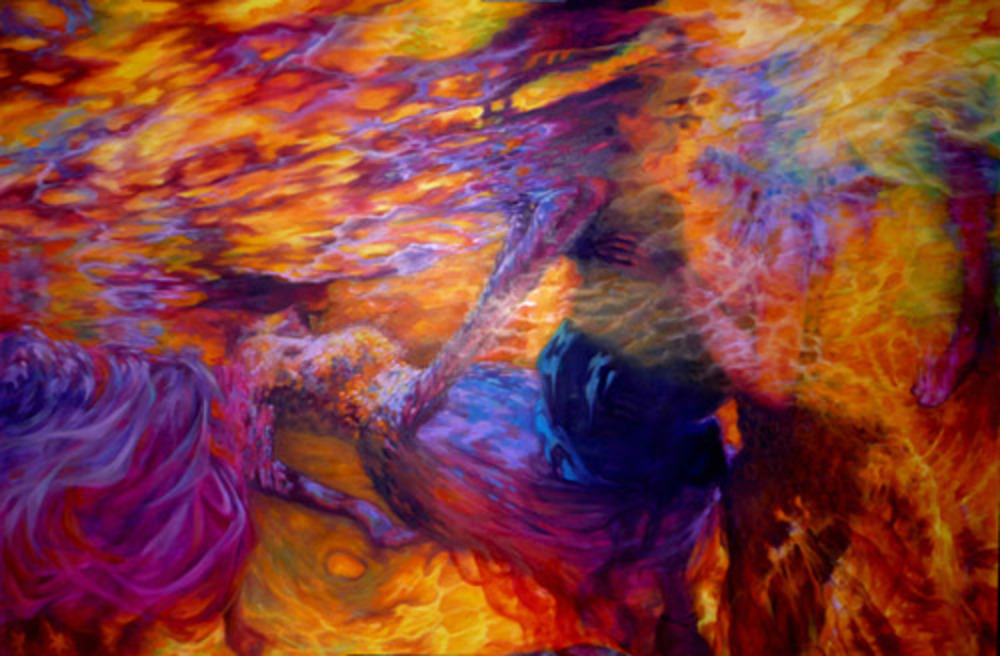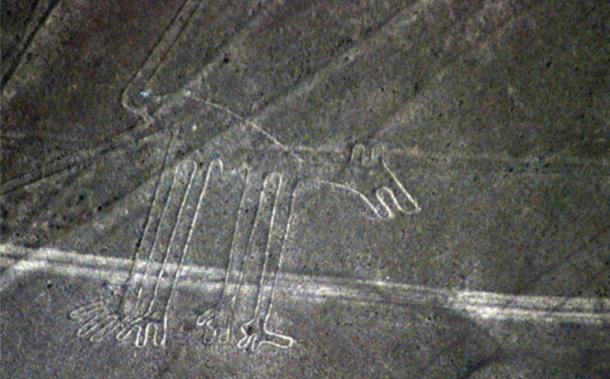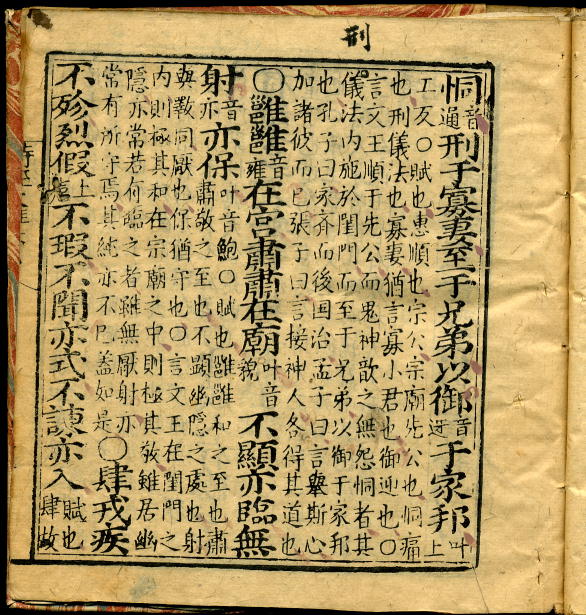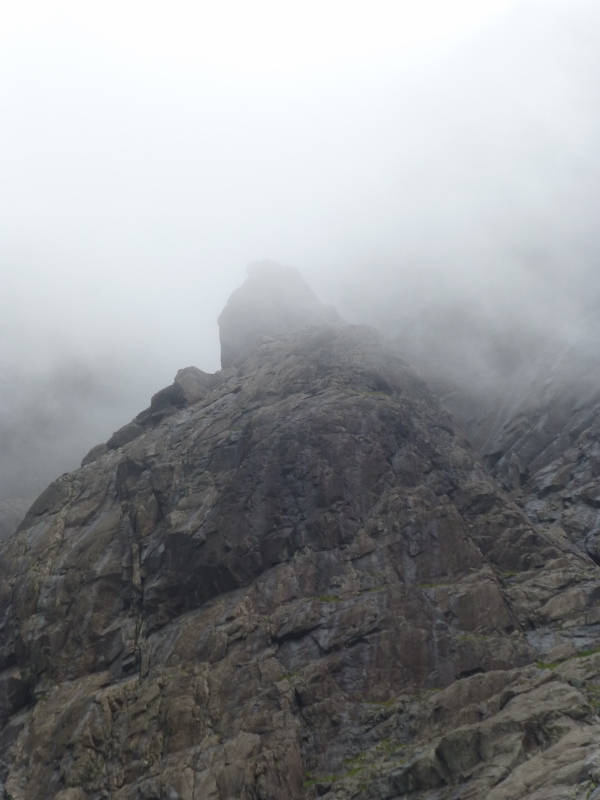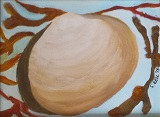

|
Women for Peace One hundred years ago today, the international Women’s Peace Congress concluded in the Hague, creating the Women’s International League for Peace and Freedom, and issuing a statement… “We women in international congress assembled, protest against the madness and the horror of war, involving as it does a reckless sacrifice of human life and the destruction of so much that humanity has laboured through centuries to build up.” The declaration goes on to outline a broad and visionary program for disarmament, justice, self-determination, and rights of women and ethnic minorities. |
1 May 2015
|
|
Notice what this poem is not doing
— William Stafford |
2 May 2015
|
|
Patience—I’ll figure it out eventually… I’ve been looking for just the right words to express the ineffable. — Josh Mitteldorf |
3 May 2015 |
|
Vihart on memory and music ‘Research shows that contrary to our perception, the more we recall a memory the more inaccurate it becomes. It changes, warps. We feel as if the more we rehearse it the clearer it becomes, and while it may seem clearer, it’s further from the original. The most accurate memories are the ones that pop up out of nowhere after years without thinking of them.’ — read the whole story from Vihart and listen to different incarnations of her composition Listen to an overdubbed vocal piece, entitled The Process By Which Repeated Opinion Becomes Fact.
|
4 May 2015
|
|
Life—Big questions about the big picture There is a black hole at the heart of biology. Bluntly put, we do not know why life is the way it is. All complex life on earth shares a common ancestor, a cell that arose from simple bacterial progenitors on just one occasion in 4 billion years. Was this a freak accident, or did other ‘experiments’ in the evolution of complexity fail? We don’t know. We do know that this common ancestor was already a very complex cell. It had more or less the same sophistication as one of your cells, and it passed this great complexity on not just to you and me but to all its descendants, from trees to bees. I challenge you to look at one of your own cells down a microscope and distinguish it from the cells of a mushroom. They are practically identical. I don’t live much like a mushroom, so why are my cells so similar? It’s not just that they look alike. All complex life shares an astonishing catalogue of elaborate traits, from sex to cell suicide to senescence, none of which is seen in a comparable form in bacteria. There is no agreement about why so many unique traits accumulated in that single ancestor, or why none of them shows any sign of evolving independently in bacteria. Why, if all of these traits arose by natural selection, in which each step offers some small advantage, did equivalent traits not arise on other occasions in various bacterial groups? These questions highlight the peculiar evolutionary trajectory of life on earth. — from the opening of Nick Lane’s new book, The Vital Question Lane tells a story that begins with a single microscopic event. After life had been on earth for 2 billion years—ubiquitous, diverse, successful, endlessly creative, but always microscopic, one cell at a time— one archaea cell engulfed an aerobic bacterium that had figured out how to burn sugar for energy. We are all descended from that one event, that one cell. Every cell in your body and my body, and also the mushroom and the jellyfish and the fig leaf, all cells are descended from that one. Lane asks: Does that mean it was all contingent, an accident? If that one cell merger had not taken place when it did, could earth have gone on for billions of years more, home to only microscopic life? |
5 May 2015
|
|
Geoglyphs are works of art, writ large on the earth by ancient peoples. Some are thousands of years old and miles across, and can only be viewed and appreciated from an airplane. Who made them, and how, and what were they thinking? |
6 May 2015
|
|
Stray Birds THAT I exist — Rabindranath Tagore, born this day in 1861 |
7 May 2015 |
|
“Experience has shown how deeply the seeds of war are planted by economic rivalry and social injustice… I would rather have peace in the world than be president.” — Harry S Truman, born this day in 1884 |
8 May 2015
|
|
Lumina Lumina ce-o simt — Lucian Blaga, born this day in 1895 The light that I feel —Translated from Romanian by Lori Tiron-Pandit. |
9 May 2015
|
|
I can do nothing. You can do nothing. There is nothing that we cannot do. — Josh Mitteldorf, born this day in 1949 |
10 May 2015
|
|
诗经, The Book of Poetry The Book of Songs is an anthology of 305 poems of varying length, drawn from various levels of Zhou society. It contains folk songs, songs of the nobility, ritual hymns, and ballads on signficant events in the history of the Zhou people. The oldest poems, the Temple Hymns of the Royal House of Zhou, may date as early as 1000 BC. But most of the poems seem to have been frozen in their present version shortly before the anthology was put together in 600 BC. The simple, direct expression of universal human feelings does not easily come through in translation. But the voices of the oppressed speaking out against their feudal confinement comes through. The genial wind from the south If along the highroad |
11 May 2015
|
|
Real inquiry has no method, no knowing—just wondering freely, vulnerably, what is it that is actually happening inside and out. Not the word, not the idea of it, not the reaction to it, but the simple fact. “Add nothing to this experience.” |
12 May 2015
|
|
Life While-You-Wait Life While-You-Wait. —Wislawa Szymborska |
13 May 2015
|
|
Don’t believe a word I say I could not condemn ordinary men for lying, when I saw it in request amongst them that would be counted philosophical persons: yet could not but wonder at them, that, writing so manifest lies, they should not think to be taken with the manner; and this made me also ambitious to leave some monument of myself behind me, that I might not be the only man exempted from this liberty of lying: and because I had no matter of verity to employ my pen in (for nothing hath befallen me worth the writing), I turned my style to publish untruths, but with an honester mind than others have done: for this one thing I confidently pronounce for a truth, that I lie: and this, I hope, may be an excuse for all the rest, when I confess what I am faulty in: for I write of matters which I neither saw nor suffered, nor heard by report from others, which are in no being, nor possible ever to have a beginning. Let no man therefore in any case give any credit to them. — Lucian of Samosata, the world’s first sci fi writer (125 - 190 AD) |
14 May 2015
|
|
Monteverdi Vespers Listen to John Eliot Gardner and the Monteverdi choir. — Claudio Monteverdi was born this day in 1567 |
15 May 2015
|
|
‘Most of us have jobs that are too small for our spirits. — Studs Terkel, born this day in 1912 Mankind, as a species, is close to the bees and ants in that we are hard pressed to survive individually,
but depend on division of labor and tight social organization.
Going with that territory is a structure of few leaders and many followers.
Most humans have to shut up and obey in order for the system to function well.
This ain’t so good for individual self-realization, but it is necessary for the function of the community. |
16 May 2015
|
|
To RLS The world is so full of a number of things — Josh Mitteldorf |
17 May 2015
|
|
An overstatement, perhaps, but with some truth to it… Whatever joy there is in this world — SHANTIDEVA So, more accurately: I believe that most of us don’t function very well when we are in pain or discomfort. I believe the Utilitarian principle that the individual is usually better able to know what he needs than the Authority, and so the Authority should leave the individual to his own devices. I believe that the idea of individualism has been stretched and distorted to form the basis of an American culture that is pathologically separate, and which serves no one but the multinational megacorporations. I believe that hedonistic pursuit of pleasure quickly becomes unfulfilling, though it has an addictive quality that may lead us to continue long after it has ceased to satisfy. I believe that those of us who have achieved a minimal level of comfort and security can best find a satisfying and fulfilling mode of life by a combined pursuit of personal growth and service to the growth and evolution of other souls, or the relief of suffering. — JJM |
18 May 2015
|
|
Animal Language Birds, mammals and even fish recognize the alarm signals of other species. Some can even eavesdrop on one another across classes. Red-breasted nuthatches listen to chickadees. Dozens of birds listen to tufted titmice, who act like the forest’s crossing guards. Squirrels and chipmunks eavesdrop on birds, sometimes adding their own thoughts. In Africa, vervet monkeys recognize predator alarm calls by superb starlings. Birds are saying much more than we ever suspected, and other species have evolved to decode and understand the signals. Erick Greene (U of MT): “We’re trying to understand the ‘language’ of the forest.” Raptors tend to be the biggest threat to birds nearest their own size because they can match the maneuverability of their prey. So a large goshawk might only merit a chick-a-dee-dee from a nimble chickadee, while that little pygmy owl will elicit a chick-a-dee followed by five or even 10 or 12 additional dee syllables, Dr. Greene said. “That sound humans hear simply as chick-a-dee actually could contain information differentiating between a Cooper’s hawk and a pygmy owl. We know birds hear this as if it’s slowed down,” he said. — read more from today’s Science Times |
19 May 2015
|
|
Find your own mountain The key then is to find your own mountain, — George Sheehan |
20 May 2015
|
|
BRICK Have I bricked up unbricked what — Robert Creeley, born this day in 1926 |
21 May 2015
|
|
What God does with his spare time It had never occurred to her that God would cry, but of course that was wrong. God would be crying all the time. He would cry and cry and never stop. |
22 May 2015
|
|
Evening Land En främling är min vän, en som jag inte känner. My friend is a stranger, someone I do not know. — Pär Lagerkvist, born this day in 1891 |
23 May 2015
|
|
Pay attention. — Josh Mitteldorf |
24 May 2015
|
|
Our day is coming Robert David Steele, former Marine, CIA case officer, and US co-founder of the US Marine Corps intelligence activity, is…widely recognised as the leader of the Open Source Intelligence (OSINT) paradigm. In 1992, despite opposition from the CIA, he obtained Marine Corps permission to organise a landmark international conference on open source intelligence—the paradigm of deriving information to support policy decisions not through secret activities, but from open public sources available to all. The conference was such a success it brought in over 620 attendees from the intelligence world. But the CIA…ensured that Steele was prohibited from running a second conference, [prompting] him to resign from his position as second-ranking civilian in Marine Corps intelligence. Last month, Steele presented a startling paper at the Libtech conference in New York. Drawing on principles set out in his latest book, The Open-Source Everything Manifesto…he told the audience that all the major preconditions for revolution—set out in his 1976 graduate thesis—were now present in the United States and Britain. Steele's book…connects up the increasing corruption, inefficiency and unaccountability of the intelligence system and its political and financial masters with escalating inequalities and environmental crises. But he also offers a comprehensive vision of hope. “Sharing, not secrecy, is the means by which we…can create a nonzero win-win Earth that works for one hundred percent of humanity.” — Read more at The Guardian |
25 May 2015
|
|
Musical wit Listen to nine Bagatelles by William Bolcom, born this day in 1938 |
26 May 2015
|
|
Wolves Re-introdcing wolves into Yellowstone Park after an absence of 70 years changed the ecosystem and even the landscape. The deer population stabilized, instead of fluctuating wildly. Meadows turned to forests. River banks stabilized because of the tree roots. Beavers and birds returned. A richer ecosystem was restored. |
27 May 2015
|
|
“By the side of the everlasting WHY there is a YES—a transitory YES if you like, but a YES.” — E. M. Forster After many conquests, we shall attain simplicity. |
28 May 2015
|
|
There is little that is as rewarding as finding one’s calling—the place where what one cares about, what one is good at, and what one loves to do meet. — Zoe Weil |
29 May 2015
|
|
Aluna The Kogi people have been living in the high Andes, much as their ancestors lived 1,000 years ago and more. They have admitted a few metal tools, but exclude visitors and communications. No one in their village speaks Spanish or any but their own local dialect. In the 1980s, when Global Warming was off the radar of everyone except you, me and Al Gore, the Kogi recognized that something was wrong when they observed reduced snow cover in their high peaks region. They sent an emissary to town, and arranged to have a film made, transmitting their message to Technological Man, to whom they refer as ‘Little Brother’. “You mutilate the world because you don’t remember the Great Mother. If you don’t stop, the world will die.” 1995 BBC Documentary. They spoke to us clearly, without anger. But 20 years passed and it seemed we weren’t listening. Aluna is the film they made as a follow-up. What we must do is embrace the core understanding that motivates the attempt to listen to water in the first place: the understanding that nature is alive and intelligent, bearing certain qualities of a self that Western thought has arrogated to human beings alone. We must make it no longer an Other; we must grant to nature the same agency that this film humbly grants to the Kogi.
Granting subjectivity and agency to nature and everything in it does not mean to grant human subjectivity and human agency, making them into storybook versions of us. It means asking, “What does the land want? What does the river want? What does the planet want?”—questions that seem crazy from the perspective of nature-as-thing. — read more from a Tikkun film review by Charles Eisenstein |
30 May 2015
|
|
Animal adoption Turns out that animal moms frequently raise offspring not their own. This week is a particularly striking case of kangaroos. Mother kangaroos carry joeys in their pouch for a year, feeding the young one, forgoing reproduction during that time, caring for the baby at considerable risk and expenditure of energy. 3% of the joeys are riding in the pouch of an adopted mother. Evolutionists are trying to find an explanation for this behavior in terms of a genetic program that might have evolved via selfish genes. I have adopted and raised two children who were not my genetic kin. It was (and continues to be) the most rewarding, the happiest and the deepest and most satisfying thing I’ve done in my life. Is it possible that kangaroo moms chose adoption for similar reasons to mine? Carl Zimmer has a column on the kangaroo story. He finds none of the selfish gene explanations plausible, and so he concludes it is a mistake, that sometimes mother kangaroos are unable to identify their own babies. How much proof do we need that animals experience emotions similar to our own? How many times must the selfish gene version of evolution be falsified before the theorists begin to choose fact over orthodoxy? — JJM |
31 May 2015
|


